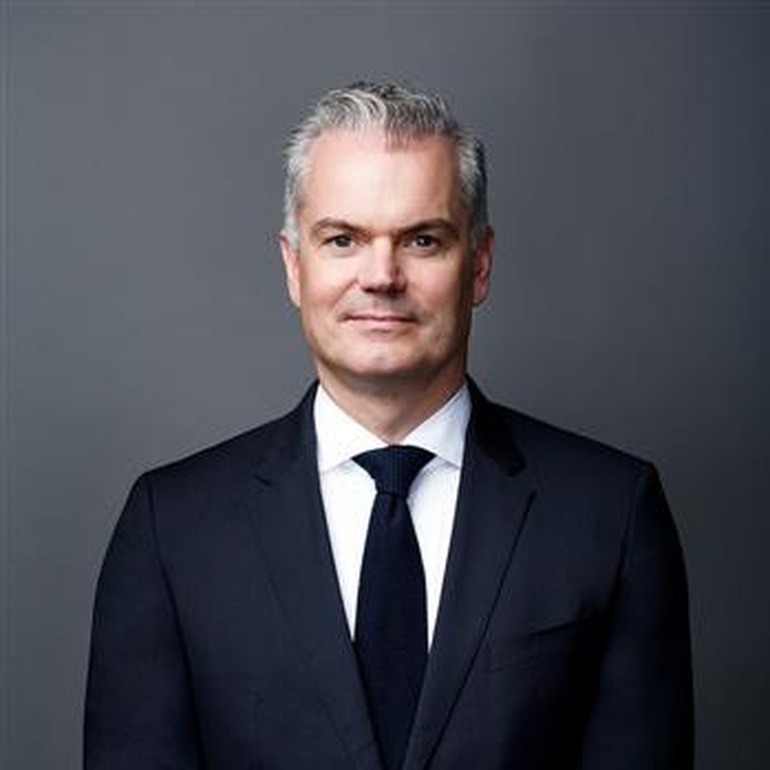5 minutes with Paul Sansom, Volkswagen Group Australia
18 Feb 2022
As TRANSFORM approaches at speed, we look forward to welcoming a range of speakers including Paul Sansom, Managing Director, Volkswagen Group Australia. Paul will discuss the uniquely Australian barriers to mass uptake of electric vehicles and here he writes about why, in the end, they will prevail.
Our world is being revolutionised by three global mega trends: urbanisation, sustainability and digitalisation.
The part played by the Volkswagen Group in meeting this seismic societal shift is in the ever more rapid production of electric vehicles (EVs), digitally connected cars that can function as a power source on wheels – automotive agents of change that will evolve the nature of personal mobility.
The automotive evolution and the drive toward urbanisation are not just concurrent trends; they are becoming increasingly and permanently interdependent.
By 2030, 50 per cent of vehicles produced by the Volkswagen Group will be EVs. By 2040 that will be closer to 100 per cent, by which time all our global production plants will have long been carbon neutral. Our company will also establish a single unified battery format produced at its own purpose-built factories.
The recognition that personal mobility can no longer evolve separately from society has seen the Volkswagen Group designate 73 billion euros ($115 billion) for the development of future technologies to 2025 – some 50 per cent of the company’s total investments.

Volkswagen’s software company CARIAD is developing software platforms that will offer various features such as a unified infotainment system and the ability to hand steering controls over to the car.
Volkswagen has also announced the development of software platforms that can be used across all Volkswagen Group cars by 2025. The vision is that some 40 million vehicles will function around these.
Closer to home, perhaps 25 per cent of Australia’s passenger vehicle fleet will be of the re-chargeable battery variety by the end of this decade. By that time, the Volkswagen Group will have ceased to invest in the development of internal combustion engines.
Volkswagen Group Australia’s (VGA) new brand from Barcelona, CUPRA, will introduce their plug-in hybrid electric vehicles in July and its first fully battery EV by year’s end. Audi will this year add to its established e-tron range with the new e-tron GT RS. We expect to make EV announcements soon for the Volkswagen brand itself and for our Czech marque SKODA.
Volkswagen Group Australia’s ambition is to become the leader in EVs.
First, though, we have to be able to make EVs run. And to do that we must first be able to charge them.
The Federal Government’s Australian Renewable Energy Agency recognises that EV adoption is contingent on charging infrastructure. Ampol is adamant that its petrol station forecourts will come to host not pumps, but power points. BlackRock Real Assets last year made its first APAC investment in EVs - $100m in Australia’s JOLT Charge.
In terms of the global quest for sustainability, a zero-emission vehicle fleet is of itself an important milestone.
Where this becomes remarkable, even life transforming for our customers, will be in the growing interdependence between the cars we sell and the environment that many of the attendees at TRANSFORM will construct.
Vehicle to Grid technology is a game changer with respect to accelerating EV uptake in Australia. Soon, our cars will become your own personal renewable energy eco system by using the car’s battery to store solar power for domestic use in your homes. The MEB platform, on which Volkswagen Group EVs are built, feature this technology.
While VGA renews its call upon the Federal Government to introduce binding Co2 emissions standards and a building code policy that all states can adopt, I believe that the immediate opportunity of affecting societal change resides with the people attending TRANSFORM.
If one of the greatest barriers to EVs in this country remains so called “range anxiety”, it is a shortfall that the creators of our built environment are in the poll position to overcome. The accessibility of home charging will be the greatest enabler of electric vehicles.
Neither new houses nor new apartment buildings will be feasible without easy access to renewable EV charging, no more so than a home without internet access. Right now there are difficult discussions in strata committee meetings across our increasingly high-density cities as to how to levy the retrofitting of EV charging points and wall boxes.
There is no doubt that the lack of such facility will negatively affect the future value of property.
Our respective industries are at the heart of a profound change in the way we live and move. While there is no doubt that we share this responsibility, we are the ones best placed to make change happen.
Paul Sansom will deliver the closing keynote address at this year's TRANSFORM: Charging Ahead – Zero emissions mobility is upon us. Secure your ticket today to hear more of Paul’s insights.
Tickets are available on the TRANSFORM website.